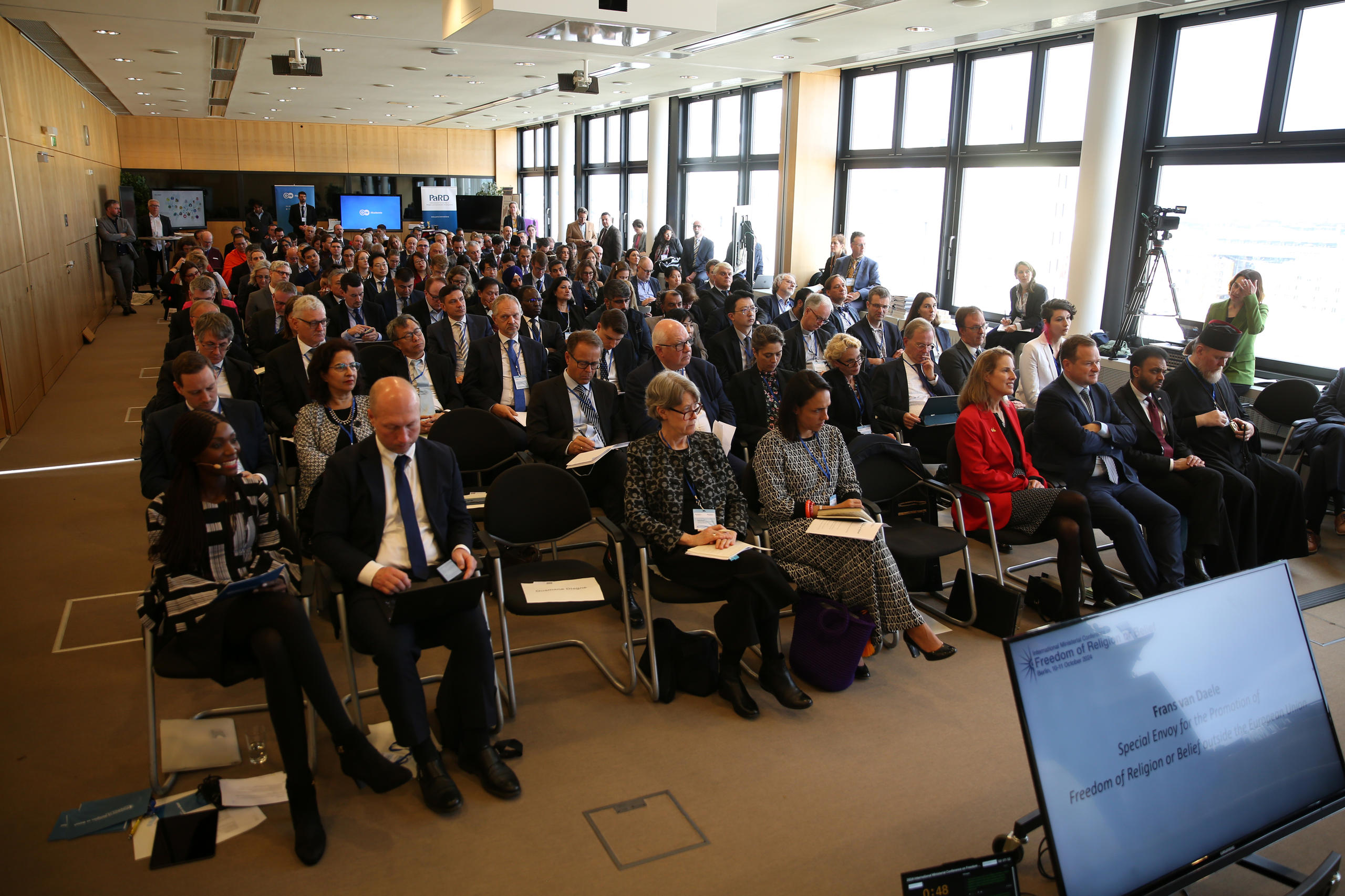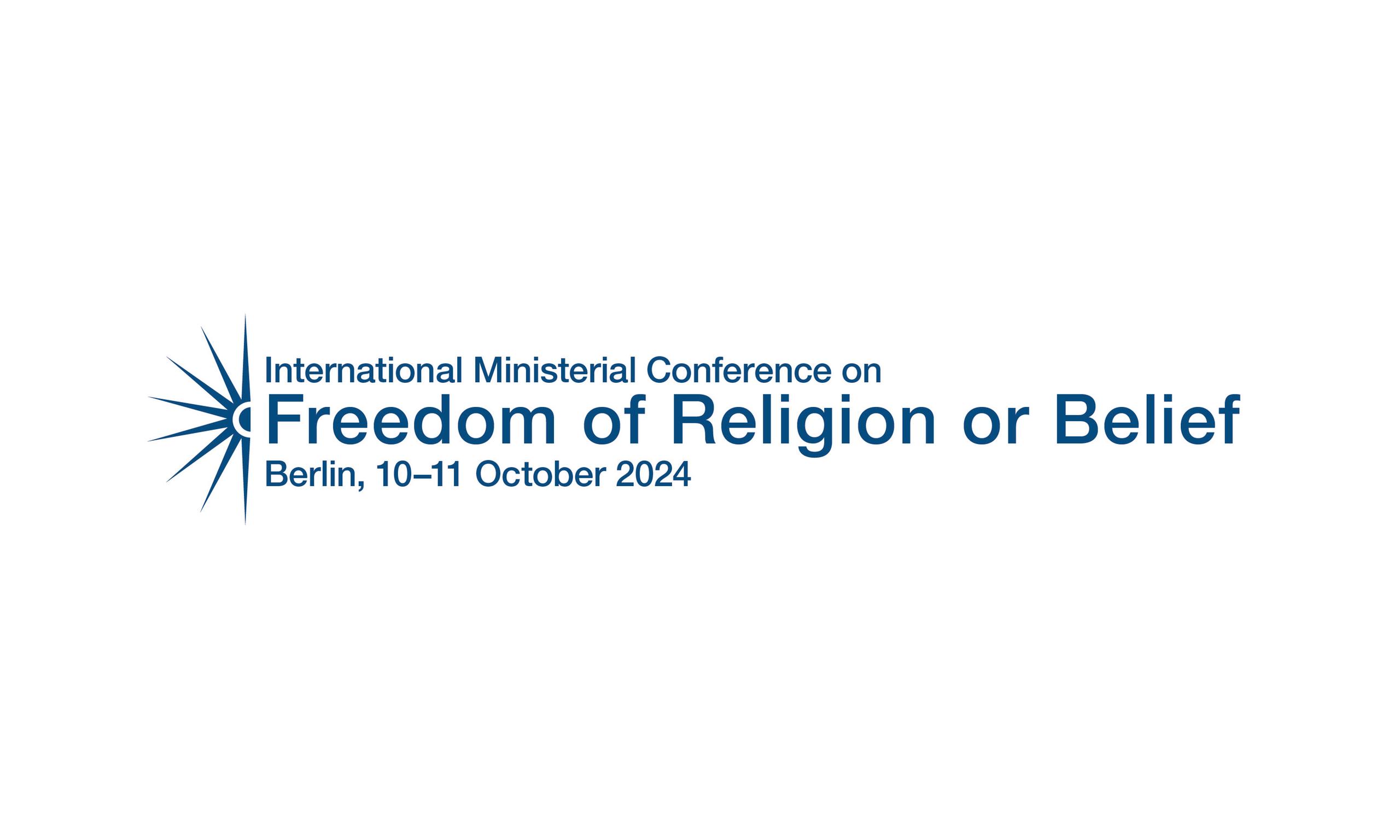International conference Germany initiates international cooperation to strengthen freedom of religion or belief in the digital space
Participants at the International Ministerial Conference on Freedom of Religion or Belief in Berlin
Frank Schwabe, Federal Government Commissioner for Freedom of Religion or Belief, said, “Artificial intelligence and its use in contexts such as search engines, social media and the generation of worship materials have a direct impact on how people worldwide are able to exercise their right to freedom of religion or belief. There are positive effects, for instance improved opportunities for people in remote regions to practise their religion. But there are also alarming developments such as the rapid spread of hate, disinformation and incitement to violence through AI-based applications in the digital world, and the use of AI for surveillance of religious minorities. We will only be able to tackle these negative developments if tech companies, civil society and governments join forces. Through our conference, we want to launch an effort for active international cooperation to strengthen freedom of religion or belief in the digital space and in the field of AI. What is vital is to make the development and use of AI people-centred and to ensure that AI governance and regulation is based on human rights standards.”
The International Ministerial Conference on Freedom of Religion or Belief put a special focus on the impact which the design and use of AI has on freedom of religion or belief, the role that social media plays in this context, and ways in which AI is used for surveillance of religious minorities and transnational repression targeting people in exile. At the conference, participants also presented projects and programmes, including under German development cooperation, which address disinformation and foster safe internet use among various target groups, for instance media workers and youth. Project examples also included country-specific activities to promote conflict-sensitive journalism and use television and social media to foster peaceful relations between communities.
Germany hosted the conference in cooperation with the International Religious Freedom or Belief Alliance (IRFBA), which unites 38 countries that want to foster freedom of religion or belief.
Outcomes and follow-up process
One outcome of the conference was the decision to set up a follow-up process involving governments, civil society, the private sector, religious communities and academia. The process will look at ways of better harnessing the potential of artificial intelligence for freedom of religion or belief and developing joint responses in order to limit negative impacts. Specifically, this will involve tech companies using more in-depth human rights impact assessments in order to ensure that their products comply with human rights standards. The broad range of experts present at the conference noted that such assessments should explicitly include freedom of religion or belief in the future.
Participants also saw a need for a taxonomy of how behaviour related to religion or belief manifests online, in order to use this knowledge for a more in-depth exchange among stakeholders regarding the underlying concepts and ideas on which their work on freedom of religion or belief and artificial intelligence is based. As part of the conference follow-up process, forums to discuss these questions will be set up.

